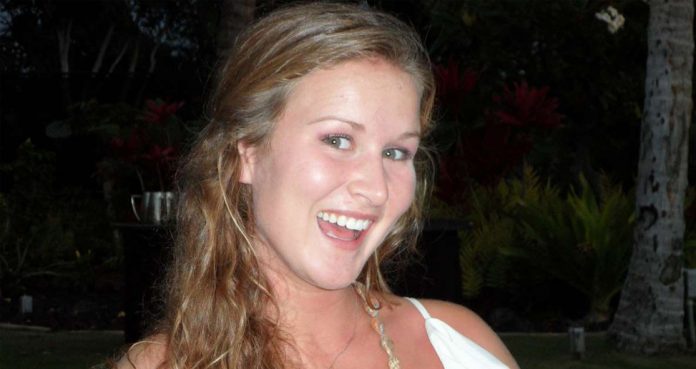At 18, a college freshman, Sara Stelzer, was in the prime of her life and was excited for being part of a sorority at San Diego State University. On a Sunday night in the fall of 2014, she suddenly became very ill. On Monday morning, she seemed to have flu. She called her parents who advised her to take Theraflu and get some rest.
And then things got worse. Sara’s father Greg got a text from her friend, stating that his daughter was in the ER. Greg and Laurie, Sara’s mother, immediately drove to the hospital. Laurie told Yahoo Lifestyle, “Every bit of information that we got along that ride was worse than the last piece of information.”
By the time her parents arrived at the hospital, doctors told them Sara was in a coma in ICU. She was not having any brain activity and the neurosurgeon believed she had bacterial meningitis. Laurie said, “We just didn’t know anything about bacterial meningitis. We didn’t know to even ask about those symptoms.”
Well, in Sara’s case, things got worse and it was too late to save her life. Greg said, “All of a sudden, within two days, we lost her.” Laurie said, “It was a very hard hole to come out of.”
Sara had previously received the meningitis vaccine for the strains A, C, W and Y, but she did not receive for the B strain, mentioned Laurie. “They came out with the meningitis B vaccine shortly after she passed away.”
Laurie shared the vaccination history of Sara because the meningitis B vaccine is not mandated and many teenagers and young adults are unknowingly unprotected against the infectious disease.
“Teens should ideally ask for the meningitis B vaccine at their 16-year doctor’s visit,” according to the National Meningitis Association (NMA). The NMA also recommend getting the second shot of the meningitis ACWY vaccine at the 16-year doctor’s visit and getting both shots at the same time.
The CDC explained that teenagers and young adults between the age group 16 and 23 are at greater risk of meningitis because they live in crowded settings, such as college dormitories.
The second dose of the meningitis B vaccine is also available. The NMA stated, “The timing of the second dose varies slightly depending on which brand of B vaccine a patient’s healthcare provider uses, so patients should follow the direction of their healthcare provider.”
Greg and Laurie have been dedicating themselves to raising meningitis B awareness to honor their daughter’s memory and help other parents to take precautionary measures. They awareness also includes educating parents about signs and symptoms and the importance of getting their children vaccinated.
In the United States, meningitis B outbreaks occurred in 20 different college campuses between March 2013 and November 2017, according to the NMA.
Some schools have started taking action. Greg said, “We hope that eventually all schools require all incoming freshman to be vaccinated.” Greg also has a message for teenagers and young adults, “For all the young students out there, our daughter was just like you…was healthy, was in the prime of her life. And in a matter of a few days, she died from bacterial meningitis. I encourage all those students, for her sake, to get vaccinated.”























